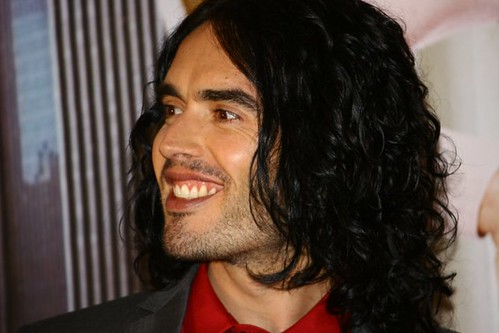Will accusations dent Russell Brand’s popularity with conspiracy theory fans?
Russell Brand #RussellBrand

This weekend’s accusations that the comic and actor Russell Brand has committed serious sexual crimes will test just how possible it is to knock the reputation of a celebrity who has always admitted to previous “bad behaviour”, and built up his fame on the strength of it.
After all, this is someone who has openly “joked” with Jimmy Savile about getting together to have sex with young women. So just how vulnerable is the Brand brand?
Reaction to Channel 4’s Dispatches documentary Russell Brand: In Plain Sight may lead to the cancellation of the current tour of Bipolarisation, his live theatre show, but will it dent the performer’s lucrative online popularity?
It is a question that matters because the 48-year-old comedian and social commentator now has such a large international following for his daily Stay Free broadcasts, to say nothing of the millions of viewers of his regular posts on YouTube, and his many TikTok and Instagram followers.
A still from Channel 4’s episode of Dispatches on Russell Brand on 16 September. Photograph: Channel 4
Such a huge collective audience has already given Brand the support to push back against what he dismisses as “rather baroque attacks” and allegations made in the TV documentary and the Sunday Times. In answer to allegations of rape and sexual assault while at the peak of his fame more than a decade ago, he said: “Now, during that time of promiscuity, the relationships I had were absolutely always consensual. I was always transparent about that then, almost too transparent, and I am being transparent about it now as well.”
Speaking on Friday night from a studio in the grounds of his £4m family home in Henley-on-Thames, he added his own spin on the motivation behind the claims: “To see that transparency metastasised into something criminal, that I absolutely deny, makes me question: is there another agenda at play?”
The most serious accusations appear to date from a time after Brand claims to have beaten his addiction to drugs and following a period of treatment for sex addiction, according to the Sunday Times. Back in 2007 he wrote in his autobiography: “At one point, about five years ago, I had a harem of about 10 women, whom I would rotate in addition to one-night stands and random casual encounters. But shagging – incessant as it was – no longer seemed to have the required calming effect.”
His lawyers, responding to accusations put to them by journalists at the Times and the Sunday Times, reportedly said they were not able to provide any response to such a “large litany of questions” and since his accusers had chosen to anonymise the names of the women involved. They said this was a strategy designed to hurt their client, who suspected there was a “deeply concerning agenda to all this, namely the fact that he is an alternative media broadcaster competing with mainstream media”.
Brand quickly found support from two fellow internet heavyweights, the billionaire entrepreneur Elon Musk and the misogynist influencer Andrew Tate. It came as well from his family, including his high-profile sister-in-law, the television presenter Kirsty Gallacher, aunt to his two daughters and the sister of his pregnant wife, Laura, 36, whom he first dated when she was 19. “Welcome to the club, Russell Brand,” said Tate, as Brand’s PR companies and affiliated showbiz entities dropped him from their websites.
The powerful recent testimony from women in Britain and America is more than just a determined attempt to tell their story and shine light on the alleged grim past of an entertainer who became a popular comedy and film star, voicing Dr Nefario in the cartoon Despicable Me, before his turbulent, brief marriage to the pop megastar Katy Perry. It is more significant than that because Brand now represents more. His voice is listened to by English speakers across the world, where his charismatic and rebellious performances give credence to several prominent conspiracy theories, including the suggestions that the Covid pandemic, support for Ukraine and climate crisis concern are all masking the activities of shadowy global manipulators.
The shows put out by Brand give his fans the chance to imagine themselves part of his circle. It is a byproduct of social media that sociologists are watching with interest and which can function almost like a traditional cult. A leader draws viewers in with the lure of promised intimacy, or at least of a sense of “community”, which coincidentally is the name of the “wellness” festival that Brand stages in the countryside each year.
Brand is, he often emphasises, merely “asking the questions” and “staying free”. But the arrival on the cultural and current affairs landscape of popular internet pundits such as him and Tate, and in America, Joe Rogan and Ben Shapiro, has become a serious challenge to public faith in careful journalism and in the more experienced, educated voices of comment. And that is exactly what was intended.
The mainstream media, claim acolytes of Brand and Rogan, has had its own way for too long and merely parrots fraudulent tenets to guard a comfortable elite. Yet, while they point at the vested interests of much of the established commercial media, and attempt to tar the licence fee-funded BBC, Brand rarely mentions the money that likely flows to him every time he ignites a big reaction by saying something controversial.